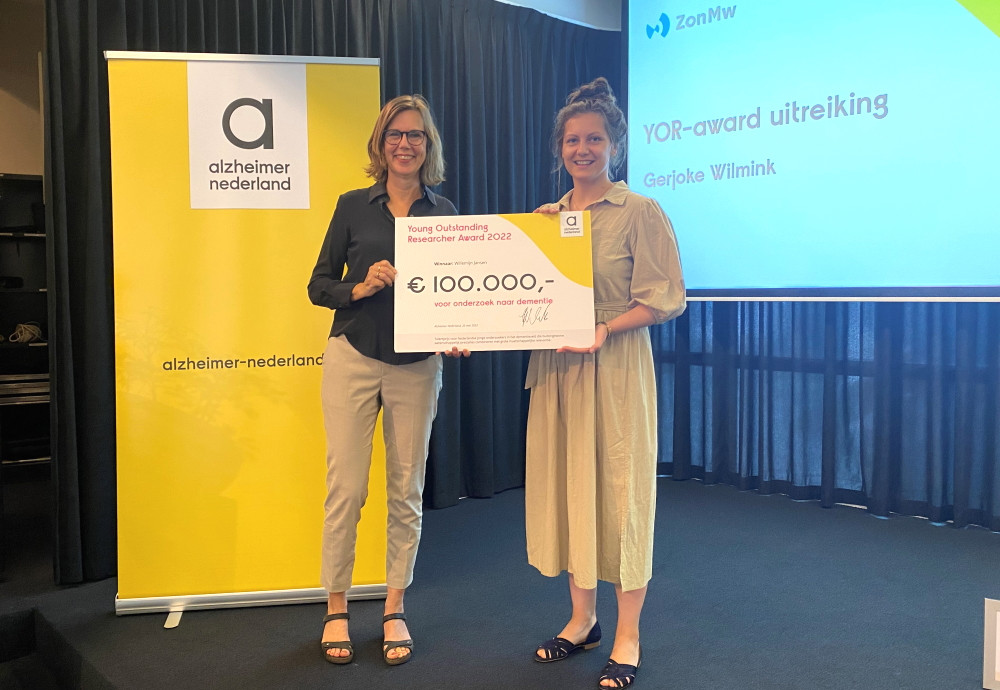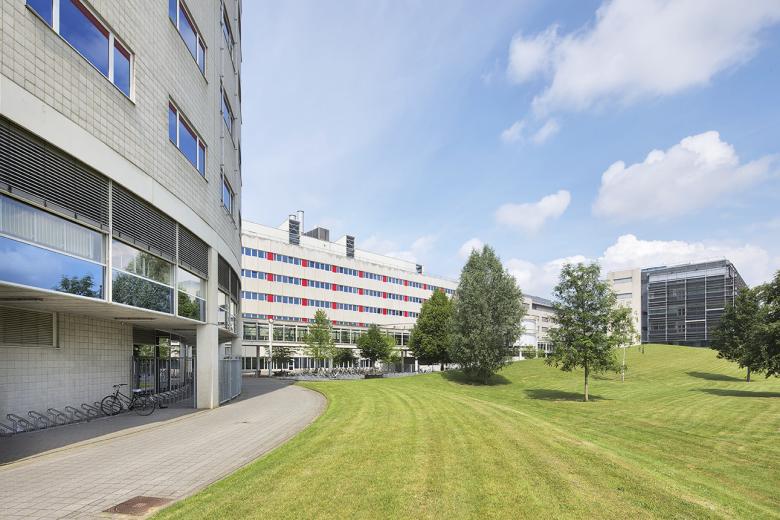Dr. Willemijn Jansen wins talent award & 100.000 euros for dementia research
It is perhaps the most fascinating question in alzheimer's research. What explains the huge differences between people with alzheimer proteins in the brain? 'One person might have these proteins and as a result is in an advanced stage of dementia. In another we see the same amount of damage, but that person does not have symptoms and is in the middle of life, so to speak. Dr. Willemijn Jansen, neuropsychologist, has been working at Alzheimer Centrum Limburg since 2012. Jansen convinced both the public and the jury in her application for the YOR award from Alzheimer Netherlands. This won her 100,000 euros for her research into 'resilience' to Alzheimer's disease.

As many as one in three people over 70 have harmful alzheimer proteins in the brain, without suffering from dementia. 'How is this possible? What is going on deep inside the brain that could explain why seemingly equal people nevertheless experience completely different effects from alzheimer proteins?' This is what Dr. Willemijn Jansen has been asking herself throughout her scientific career. 'I think the difference really lies in people's resistance to this damage. I think that's the difference that explains why one person gets dementia from alzheimer proteins and the other doesn't. But also why the disease progresses so quickly in one person and much more slowly in another.'
Using resilience against alzheimer
With the talent prize, Jansen wants to expand her research into resilience. 'With an earlier grant, I was already going to look at the differences in proteins in cerebrospinal fluid. There are thousands of proteins in cerebrospinal fluid. Are some of them more or less present in people who are resilient to Alzheimer's disease?' Thanks to the talent prize, she can also look in brain tissue to see whether these proteins are indeed involved in resilience to Alzheimer's disease. 'That is important, because it may provide us with very interesting targets against Alzheimer's disease. Not just for the long term through medication, but possibly also through lifestyle. It may be that we can do something ourselves to increase our resilience to Alzheimer's disease.'
Advocate for diversity in research
There are huge differences between the effects of alzheimer's proteins. What causes this is unclear. Is it gender, population group, genes or perhaps the way you look at life? Jansen: 'If we know what protects against Alzheimer's, we may be able to find a treatment. For this to happen, however, research must be more inclusive. As a society, but also as researchers, we are not yet sufficiently able to involve everyone. That is a real shame. It is precisely by making use of the diversity among people that differences become more apparent. And of course we want everyone to benefit from the results of our research.'
YOR award for retaining talent
Since 2019, Alzheimer Nederland has presented the Young Outstanding Researcher (YOR) award to the most talented young researchers in the field. With the award, Alzheimer Nederland wants to raise awareness for the research of the winners, but also that of the candidates. Too often, Alzheimer Nederland sees talented researchers being forced out of the field because they cannot get a permanent position at a university. An enormous waste of talent. Jansen: 'I am really very happy with this recognition and I definitely expect it to help me in my career.' Many former winners also received a permanent position, partly thanks to the YOR award.
Bron: Alzheimer Nederland, MUMC+
Also read
-
Independent inquiry exonerates Professor Machteld Marcelis
Professor Machteld Marcelis can continue her work at Maastricht University, the university’s Executive Board has determined. An independent inquiry commissioned by the board and conducted by the agency BING found no evidence of an unsafe social environment within the Psychiatry section of the UM...

-
New animal research facility Maastricht in existing location
Maastricht University's Executive Board has approved the plan to renew the animal research facility for UM and Maastricht UMC+ at the existing location at Universiteitssingel 50 (UNS50). A new building is therefore off the table.

-
Energy transition for all? A third of the world's population still cooks on open fires
In a new study, PhD student Esther Boudewijns developed two practical tools to improve the implementation of cleaner cooking in low-wage countries. The results of the research will be published on June 16 in The Lancet Planetary Health.
